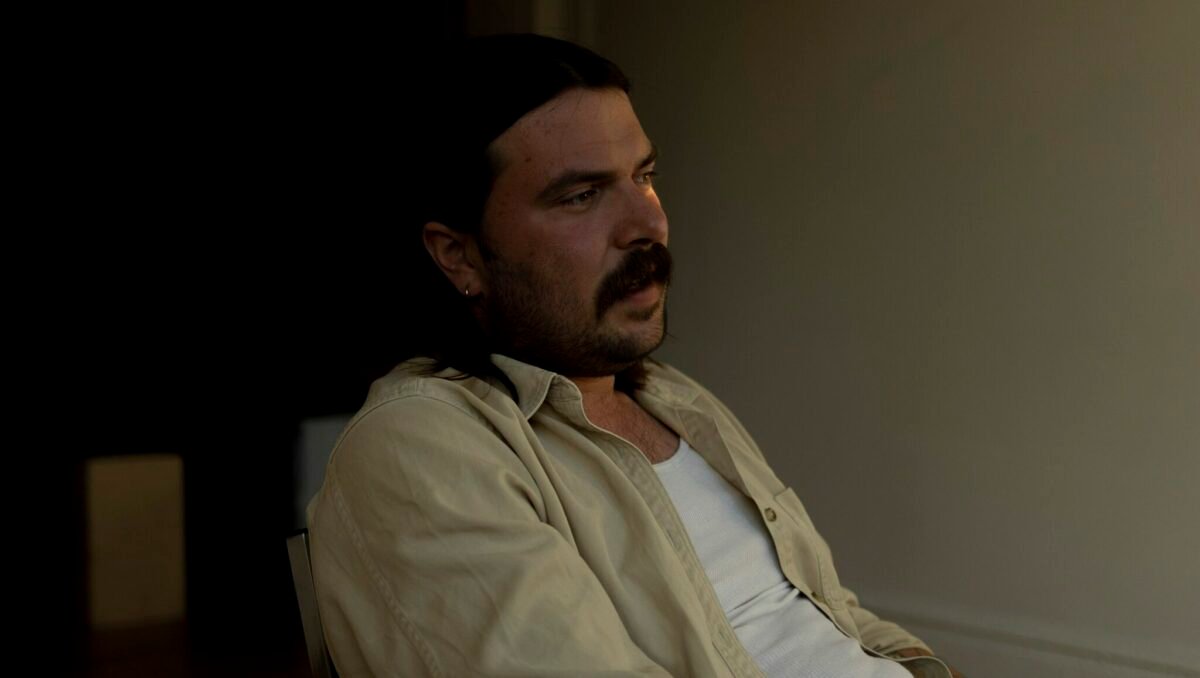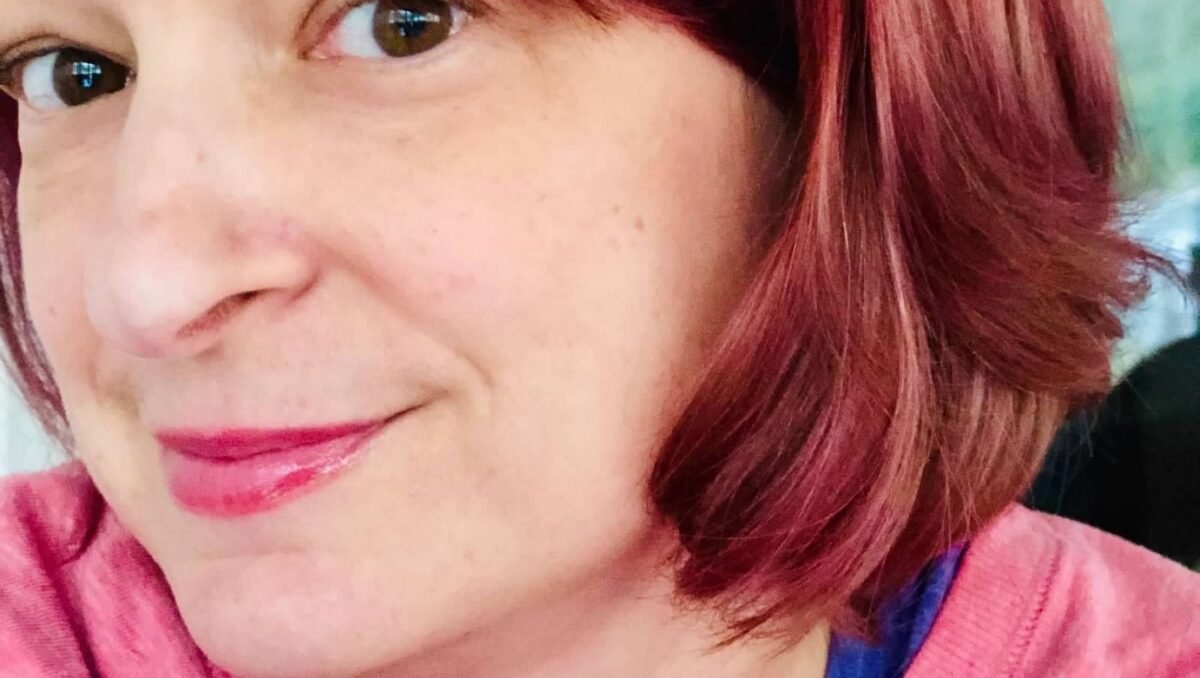TWO POEMS by Kelley Beeson
Moving Myself Around
I am a crumpled piece of notepaper
moving myself around the house like a scared tenant.
I consider cave-life,
but caves are so wholly black and full of nightimes.
Roads were animal prints I followed.
My heart a slick, scrubbed, washed wood-thing
with unsayable complaints–
a marathon I ran first thing before I was awake.
The day after we sleep together,
the keys lonesome on desks,
I am a bald soul silent
under a tarp waiting for spring.
Near the End
The shape of my hand against the sky as I drive.
The night where we left it.
We are ancient and nearly done with each other.
Wooden instruments whine in their houses for us.
The grit of our lives simmers just over there–
a jammed film reel: a smear of juice from the fruit,
my crossed heart inside my animal lungs.
The scene inseparable
from the rest of the world.
Under indecisive skies
the green in the early
year will come, out of the sheen.
I sit at the cliff.
I almost love him.
- Published in ISSUE 29
TWO POEMS by Monica Cure
MONTH TO MONTH
I do it on purpose, I think. I’ve been without
a phone plan for years now and every month
I forget it’s time to pay until I can’t return
a call or a street won’t show up. My map’s frozen
and I’m nowhere on it. I imagine I’ve run away
to a forest whose dark trees blanketed in snow
make the perfect fort. I’ve decided to live here.
For an hour or so no one can find me, not even
those who aren’t calling
OFF SEASON
At the beach, instead of the book I brought,
I turn the pages of my longing
I thought I could be alone
in this dusty seaside town
Summer kitchens witness every single
passerby
Water is expensive, a banana is a meal
A door ajar off the sidewalk
frames an old man in the bluish glow
of a slot machine
I want to quietly close it
but don’t come closer
For three nights, the train sounds of leaving
grow heavier and heavier, headed
straight for my chest
The last morning, my coffee is salty,
I pack up my souvenirs of sand
When I look out the scratched train window,
it is the landscape of my longing
- Published in ISSUE 29
TRAIL GUIDE TO THE BODY (3RD EDITION) by Lenna Mendoza
I saw the sacred and profane over my mother’s shoulder.
The massage therapy textbook held a naked man
in reverent stance, palms upturned at his sides.
There, in the field otherwise unsullied, he stood or laid.
His expression hard, but neutral. Eyes shut
and skinned, lids pink as the inside of my mouth.
I believed he had not emptied out, that thoughts still whirred
beneath the brush stroke fibers twisting under and over
the echo of bones that filled his chest. I learned he was not
alone when she flipped to find his kin, a legion of identical men
refusing each other’s gaze. Pages fell, bodies accumulated
and scattered, butchered into limbs, curled or tensed,
a wet red bouquet. What surface remained I found at the edges,
enough to make certain the bodies’ race, a white drape
down the bicep, pale ears, near bloodless toes. The men looked
nothing like my father. Less still when out came their perfect,
plaqueless hearts. But those bodies were the truth,
the way she studied them, and they looked nothing like us.
Have you ever seen an anatomical model of a child?
Are the parts smaller or closer together? Do they appear
less like meat? Whatever a page privileges, flesh is flesh
and mine was fine for practice. What did Mom see when she dug
her thumb beneath my shifted shoulder blade to strip the muscle?
Was it my bones protruding, littler than those of her classmates?
Or, for a moment, did I become her impossible textbook Adam?
- Published in ISSUE 29
EXCERPTS FROM “PICTURES OF THE WEATHER” by Timothy Michalik
My sister is dead. I fold my socks and arrange them
in shaky piles. They encounter the dark, dust. I am
encountering the dead while I’m reading this book.
It is about rearranging things, like thinking before
feeling. Like with every book produced the world
gets darker. The logic is shaky, the prose crude.
The dead encounter these things, but tell us
only later. I step outside and the cigarette
my sister smokes turns to dust, arranged just so.
All things come first. Here, another day.
Green balloons in the grass. A can of paint
and a towel. Wipe your face off when
you are looking at me. It is so dead like that.
First, the day. Looking back at it, straight
ahead. In the grass, there are things, faces.
People, looking. The day comes first, and
then it is dead. A towel wrapped around
a can. The people, me. The dead.
I’m staring at my friends. All of them.
They live with these actual words. A knock
at the door, who is it? Somebody else’s
idea, I guess. Staring at words like “door”
and “actual.” When I head home, I notice
my coat has a shadow. It lives. All of this
staring, and I’m just now noticing. Who is
knocking on the actual door? It is me.
I left my keys at home, behind the knocked door.
There is loneliness, things in their boxes.
The loneliness of a thing in a box. Stairs
left unclimbed, those too. It is a thing
not sculpted in time, time. It is a thing
in a box. The fragrance of loneliness:
ambroxide, compounded. Powdered
musk. The thing on the stairs, waiting.
Climbing a box, with time. Lonely time,
sculpted into those boxes, too.
Funerals replaced luncheons. And they make me
feel like pigeons lost in the post office. I don’t
want these anymore, sack lunches or a corner
office. I get high and walk into the organ loft.
I scribble bunnies onto a postcard and mail it
to myself. I go out for lunch on my long walk
home in the snow. After several weeks of this,
it just doesn’t feel fun anymore. The organ
notes go too high, and then we all go home.
- Published in ISSUE 29
TWO POEMS by Karin Gottshall
December is a poltergeist,
noisy with carols and nor’easters. My family
is a wolf pack, and we celebrate Christmas
stalking something timid and gamey: a good
night’s sleep or lost souvenir spoon
from a trip to Montréal.
Lo, the churchyard bears the symbol
of a virgin birth: a nativity whose sheep
keep turning up on the ridge, throats
slit. I light a candle in the cathedral, try to find a place
where the urge to scream is less consuming.
It’s a nuisance-haunting, and I try to hide it.
Hunt for a spirit-box or carol—hallelujah!—
with something to tell me other than
childless one, shivering blood-thing on the snow,
your mama is dead and your house is so cold.
The Last Ice Age
I have a habit of withdrawing
into the Pleistocene epoch
I empty all my language into the fire
and my skull grows large with silence
My blood is red as blood
At night I fall into the sky
I take a dog to bed
and sleep until we both need meat
The stars tell me nothing
I do not need to know
Everyone I’ve ever loved has been keen with hunger
Everyone I’ve lost has been buried
with their bone beads
and there is no need to visit their graves
I am on the wide plain with the running horses
My body is a simple instrument for the wind to play
- Published in ISSUE 29
TWO POEMS by Tobi Kassim
Ars Liturgica
For the food on the other side of grace I sputtered shortwinded prayers. My father said “slow down; pray like this.” He said always start with gratitude. Even for another day. I scoured scripture for the blueprint. But even pater noster has no lines of thanksgiving. Only give us this day– Still I hear the braid of his voice in mine, trying to fit thank yous between the breaths. When he took the five loaves and two fishes it wasn’t quite a request, but he gave thanks and broke the bread and broke it and broke it. The way when you first love something your hands keep reshaping to receive it. I might be hijacking my memory again, veering off from my father’s lessons. I’m asking my hands what I’ve been given again. The past weighed a little in my palm. Then it became more than I can hold. How will I redistribute? Seasons repeat to reflect my difference between them. When I get deep in springwork my hands crack like my dad’s after a day at the granite shop. I dig up the crushed rocks of the soil up north, and some still solid ones. The loud shroud of the leaves is liturgical. Thank god our hands are jagged, rough enough to polish stone, to thread a needle through the stem of a flower like a pin in time, to capture the winter’s workings in calluses. Thank god soon this skin will be friable enough to accept the roots of a small tree. I stay dirty so my veins can feed on midden. As it is in heaven. I hope my flesh is feeding something in its long coming apart. I almost feel ready to pray but there are no words to remember. I come to the table like bread for grace. To break down again.
Natal Chart
The last time I saw my sister in Nigeria, she looked
like my American sister, 8 years younger, their sixth
birthday.
*
Resemblance runs
so strong in our blood they forced an ocean
between us to impose a difference.
*
My eyes sweat over the false
logic of replacement.
Simi is a growing echo across
the distance everything Dotun
does travels to reach us.
Nigeria is a living
sacrifice amplified
in thickening time.
Remember to call home
displacement, delay.
*
Zoom in again. Everything in my mom’s house is
a metaphor for the cosmos. Plates with holes
in them, ovens open for sun, low hum under
pictures growing apart.
*
“When two universes are in phase, they are coherent.”
Rooms are full of frequencies we can’t isolate.
Inner ear scratchy
for voice
in American vacuum.
*
If the band that expands to keep
the universe contained had a name it would be
called the universe.
*
Kassim; Qasem: from the Arabic, one who divides, one
who distributes
*
I intended to shear
widely, to turn severance into a house.
We moved for my father
to fill in the ellipse
of his brother’s affairs.
*
Josef Albers: To distribute material gifts
is to divide them; to distribute
spiritual gifts is to multiply.
*
Me and my brothers had an airplane
in the cabinet, we let
our coordinates drift in the dark.
*
If a divided body makes our heart stronger
air another vein
to push blood through.
Distance a wound blood could suture.
*
I touch night windows and join
the dots in widening rings
To retrace your orbit
I curve the line
keeping time apart.
- Published in ISSUE 29
- 1
- 2





